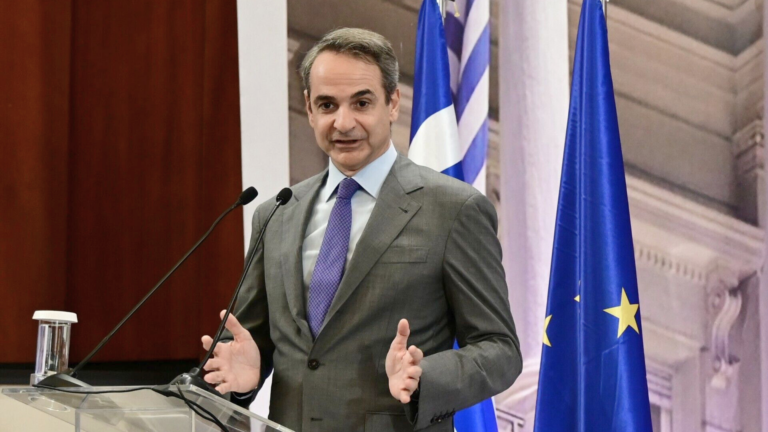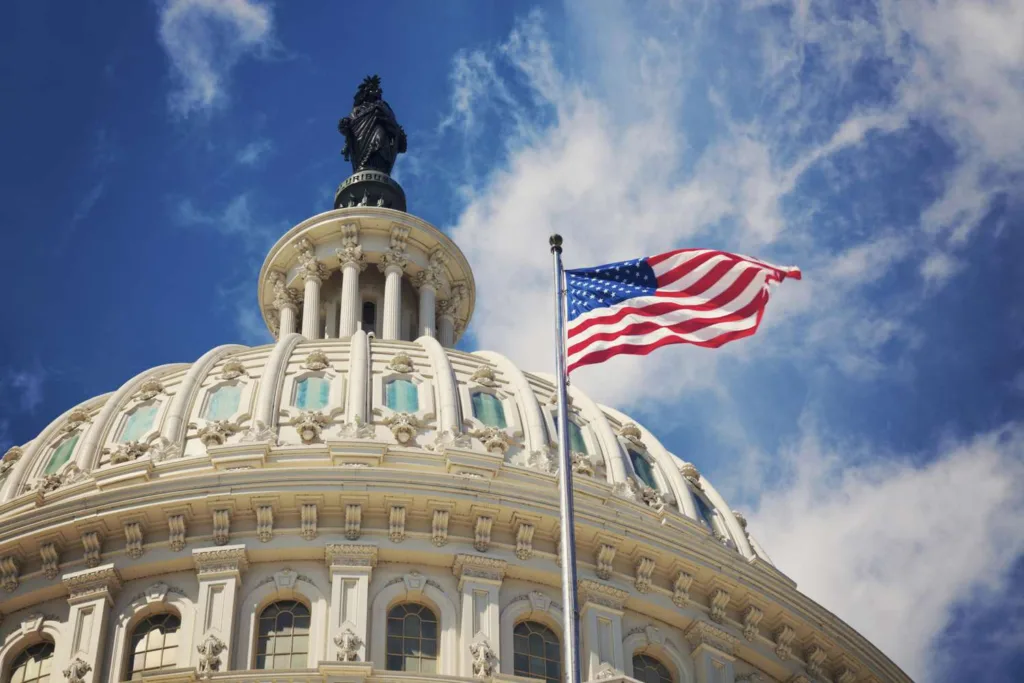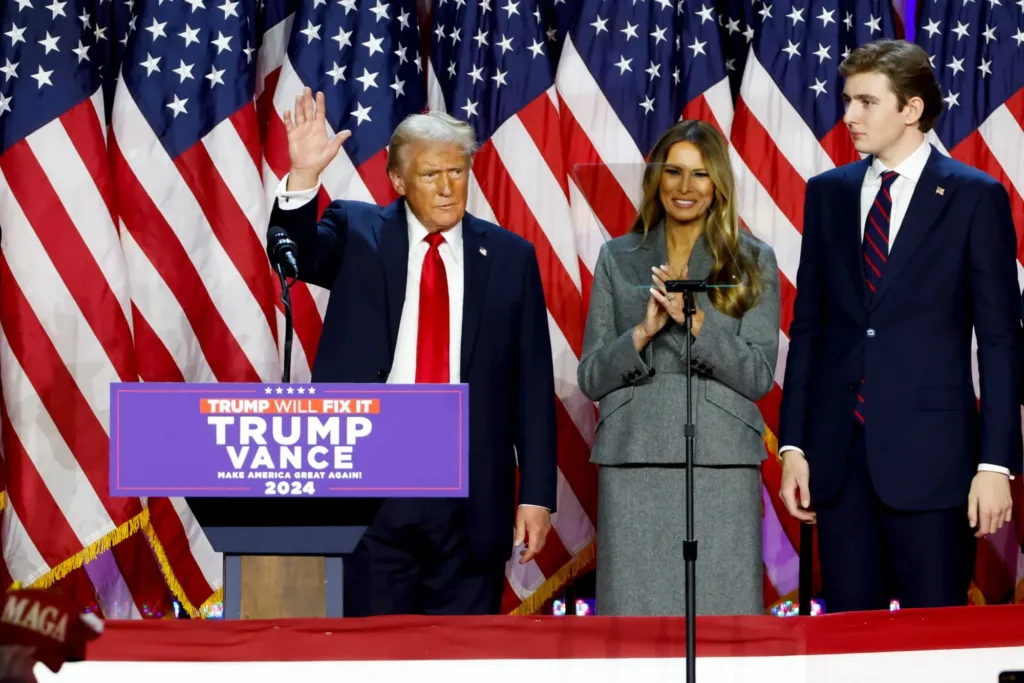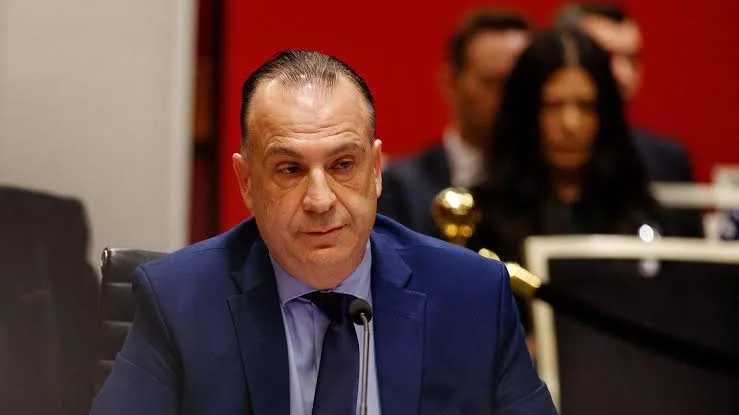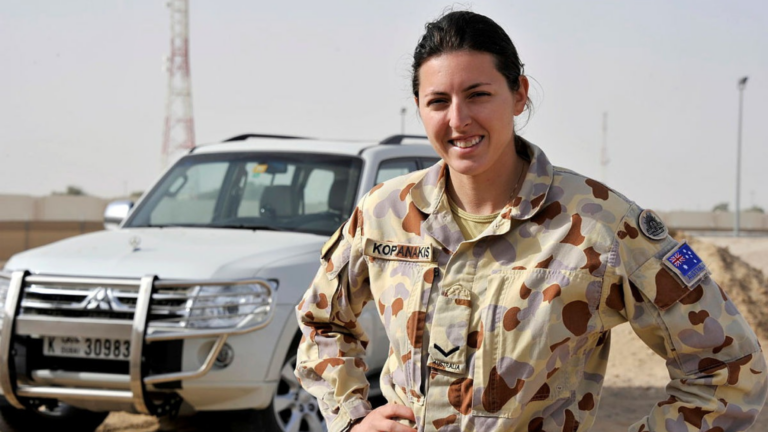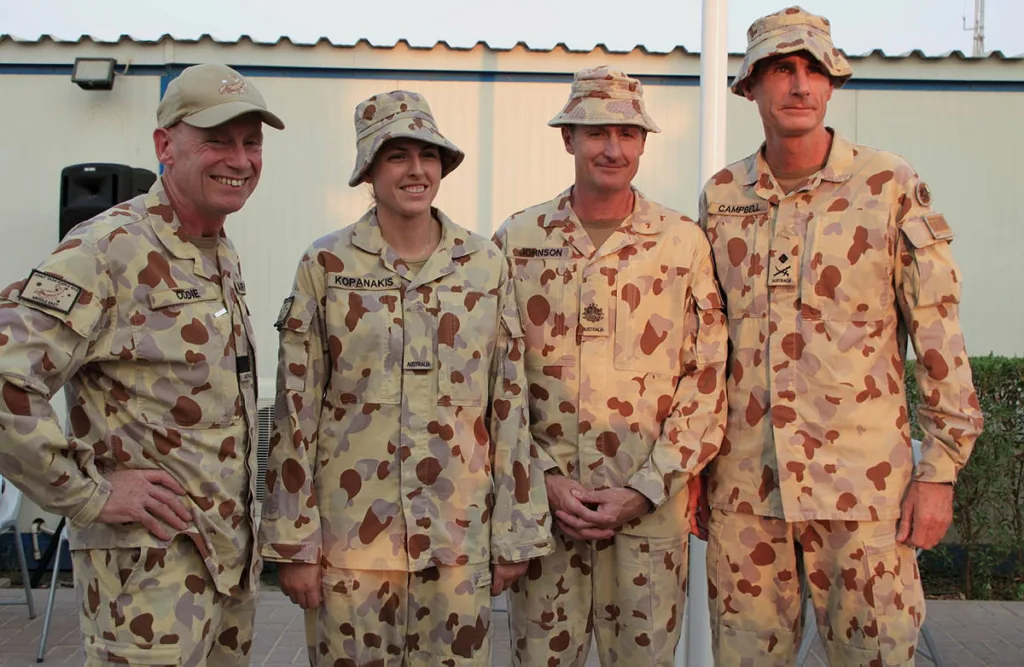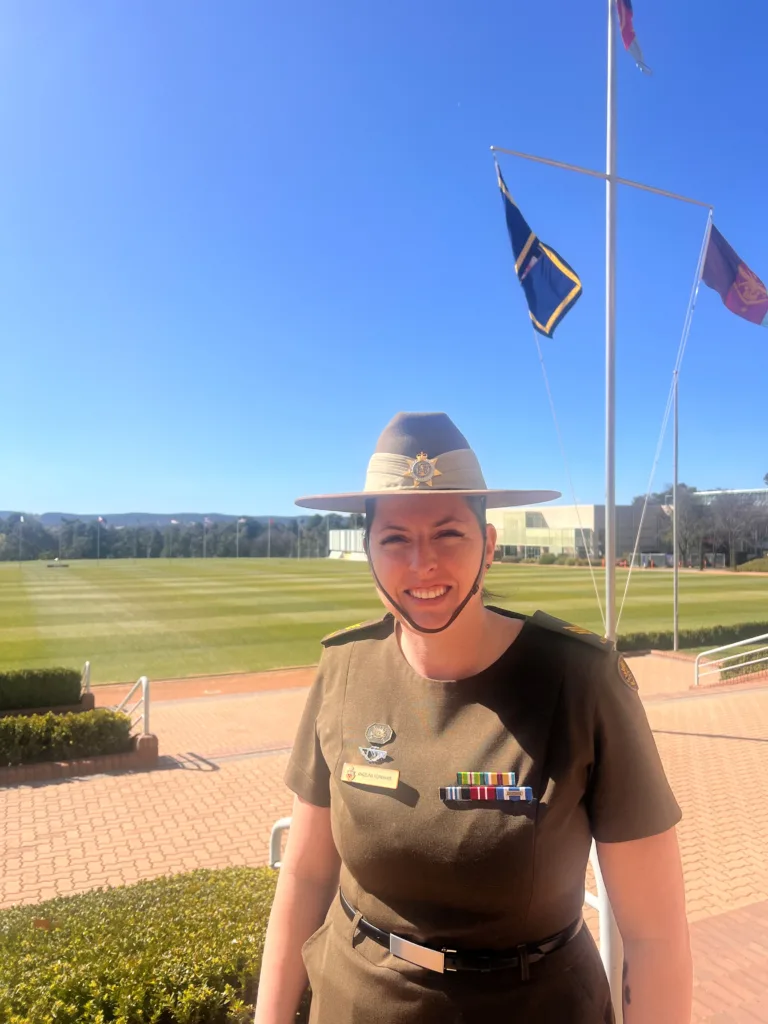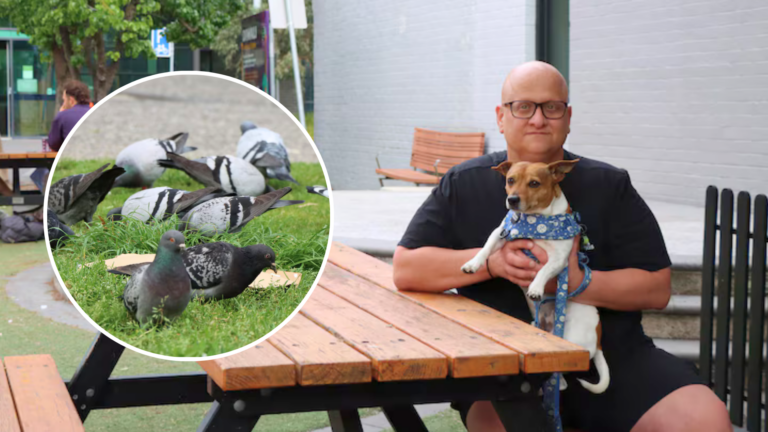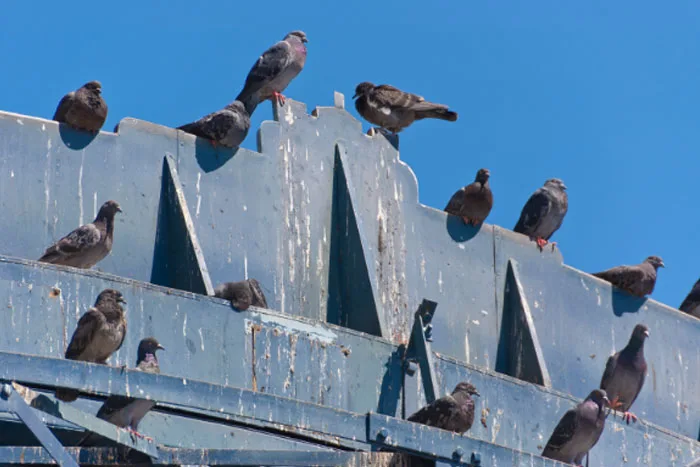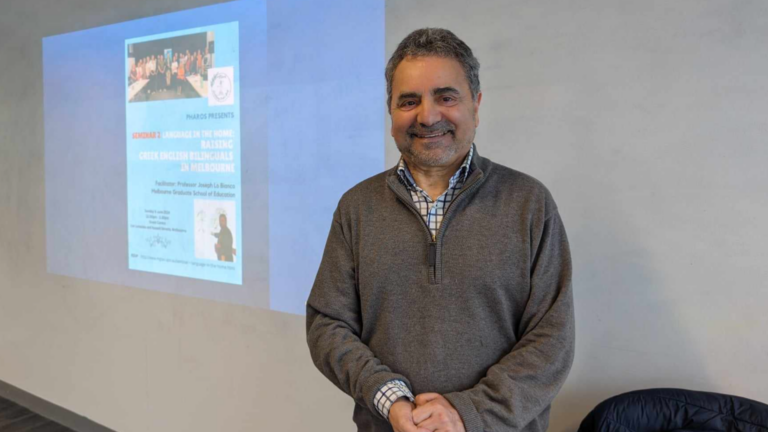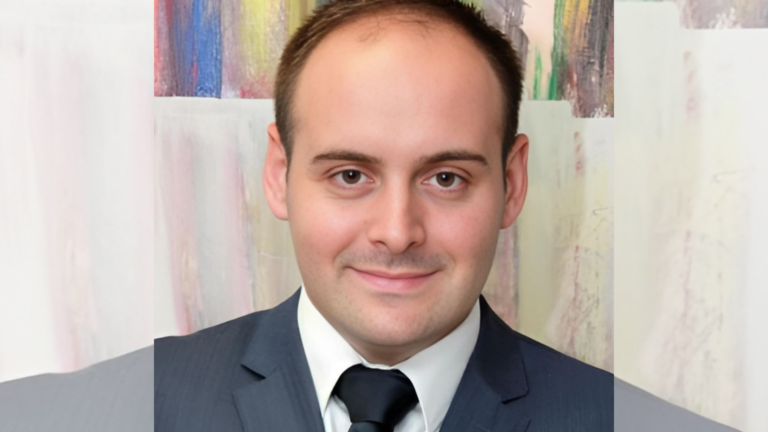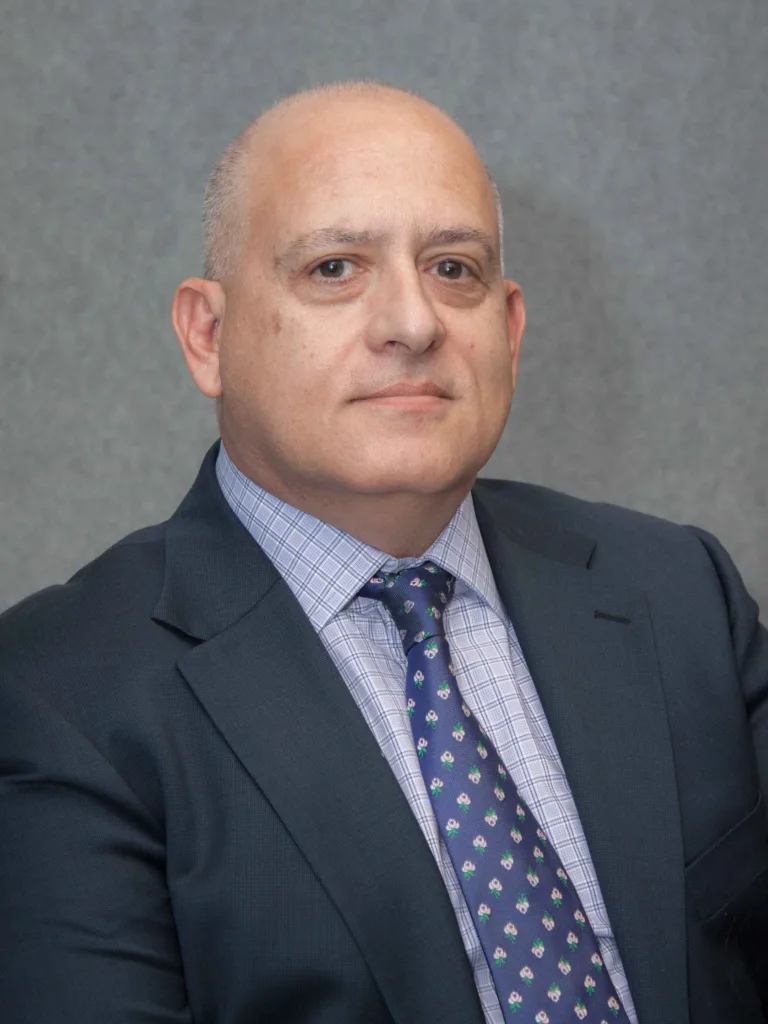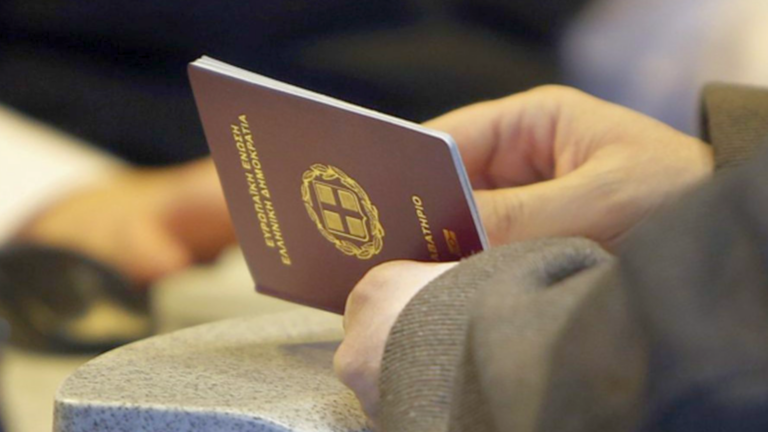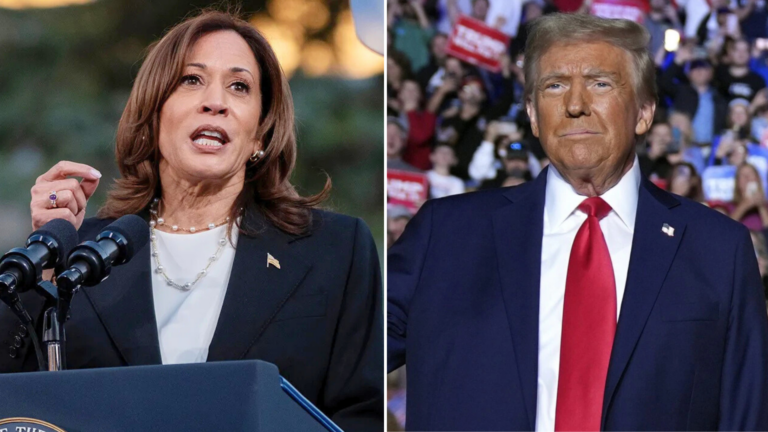By Ilias Karagiannis
With numerous references to Australia and its community, the presentation of the Ministry of Foreign Affairs’ Strategic Plan for the Greek Diaspora 2024-2027 took place on Wednesday, November 6.
In the packed amphitheatre “Giannis Kraniotis” at the Ministry of Foreign Affairs, on what Minister of Foreign Affairs, Giorgos Gerapetritis, described as a “historic day,” a comprehensive and cohesive plan was unveiled. This plan aims to significantly strengthen the ties between Greece and Greeks abroad.
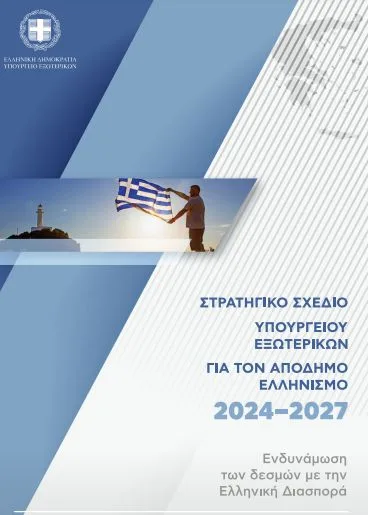
The event was highly symbolic and well-attended, with political leaders, representatives of the diaspora, and various other stakeholders present. The presentation was made by the Deputy Minister of Foreign Affairs, Giorgos Kotsiras, and the Secretary-General for Greeks Abroad and Public Diplomacy, Myra Myrogianni, while Prime Minister Kyriakos Mitsotakis and Minister Gerapetritis were also present.
The strategic plan includes a wide range of initiatives and actions focused on enhancing the national identity of Greeks abroad, strengthening the Greek language and culture, improving the daily lives of diaspora Greeks, and fostering closer connections between them and Greece’s central government.
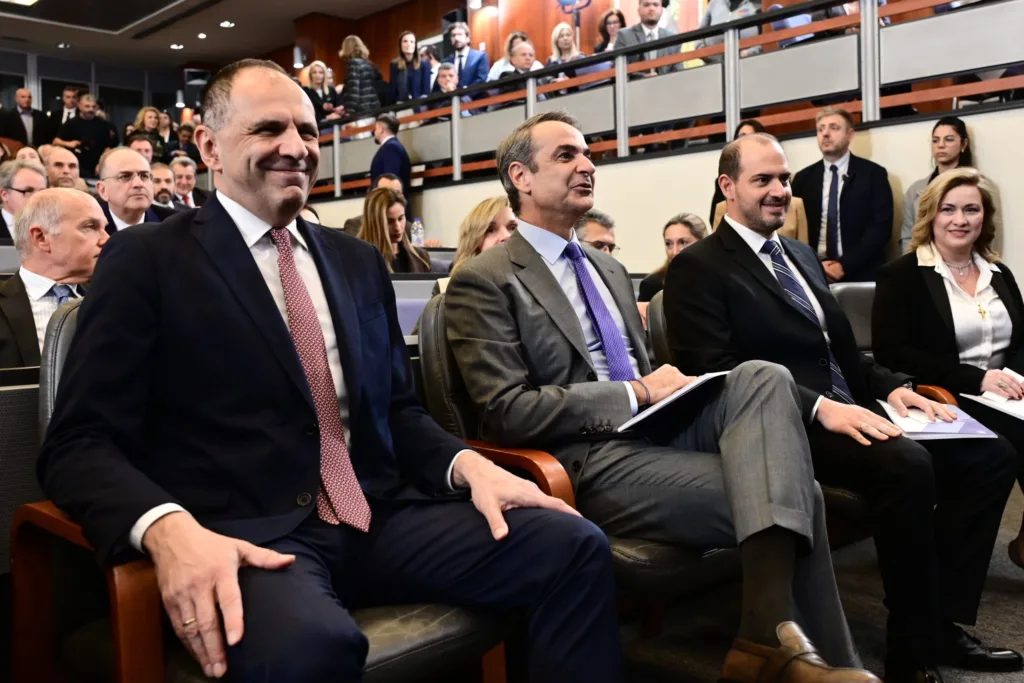
“An invaluable asset: The diaspora“
In his address, Prime Minister Mitsotakis described the Greek diaspora as “an invaluable asset for Greece,” underscoring that the new plan is the result of collaboration and consultations with diaspora organisations worldwide. He also pointed out that the significant constitutional reform allowing Greeks abroad to vote from their place of residence “opened new prospects for deepening the relationship between Greece and Greeks worldwide.”
The Prime Minister made special mention of the hospitality programmes offered to children and young people of the Diaspora from countries such as Australia. He reflected on his own personal experience, having travelled to the United States at the age of 15 through the Hellenic Youth Association of Thessaloniki, an experience he described as “a life-changing journey” that brought him closer to the Greek communities abroad.
He also highlighted the importance of initiatives aimed at women in the Diaspora and noted that he would have preferred the upgrade of consular services to be the first goal of the plan, rather than the sixth.
“Greece is changing and becoming better. The challenge of national progress is not only ours, but also that of the diaspora,” he concluded.
A holistic plan with six goals
Minister Gerapetritis called the plan “visionary” and pointed out that it reflects the Prime Minister’s commitment to strengthening the ties between Greece and the Diaspora. He thanked everyone involved in drafting the plan, particularly noting the role of technology in making life easier for Greeks abroad.
“The digitisation of services, such as passport issuance, is a central pillar of our plan,” he said.
Deputy Minister Kotsiras described the day of the plan’s presentation as “the culmination of a long and collective effort” and expressed gratitude for the contributions of the Diaspora in its development. He specifically referred to the new website Diaspora.gr, which will serve as a central hub of information for the Greek Diaspora, and the creation of a Registry of Diaspora Organisations, which will facilitate communication and help map the needs of the diaspora.
“This is a primary endeavour with over 100 actions that will be continuously updated to meet the needs of the diaspora,” Mr Kotsiras said.
He also emphasised the strengthening of Greek Studies programmes in universities across the United States, Canada, Australia, and South America, stressing that “support for Greek Studies is a fundamental issue.”
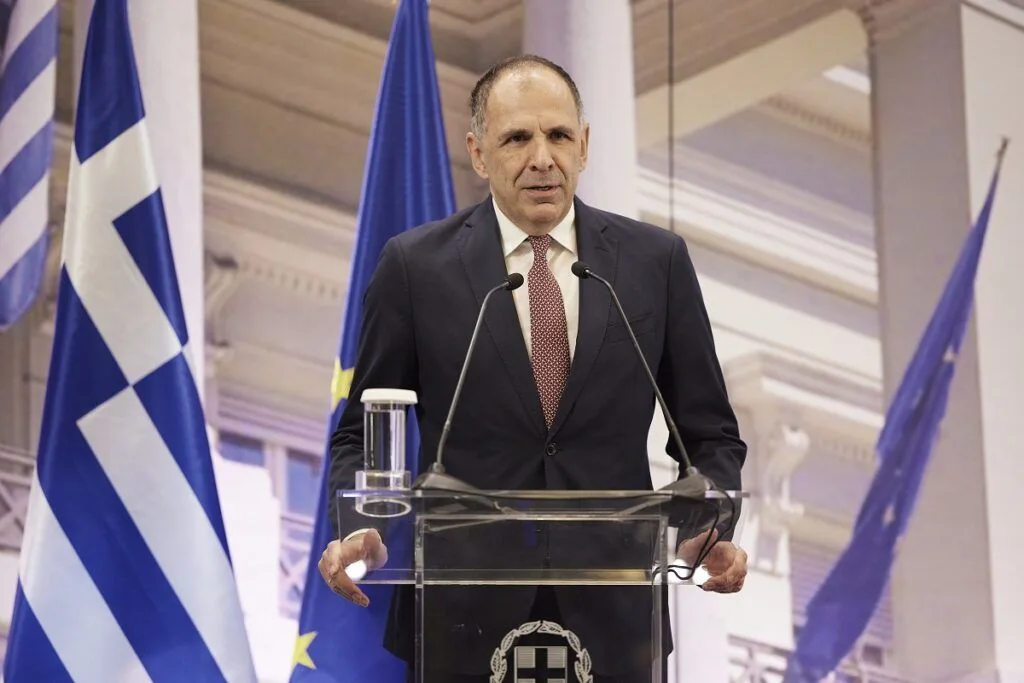
The plan focuses on six main objectives:
- Supporting and developing networks and structures of the Diaspora, with an emphasis on new ways of organising them.
- Leveraging the presence of the Diaspora to enhance the image of Greece.
- Maintaining the elements of Hellenism by strengthening the Greek language, history, traditions, and culture, while approaching and empowering the younger generation.
- Maintaining and strengthening bonds with the Orthodox Church as a unifying factor between the metropolitan centre and the Diaspora.
- Strengthening bilateral and multilateral collaborations in the area of Diaspora affairs.
- Upgrading the services provided by the consular authorities.
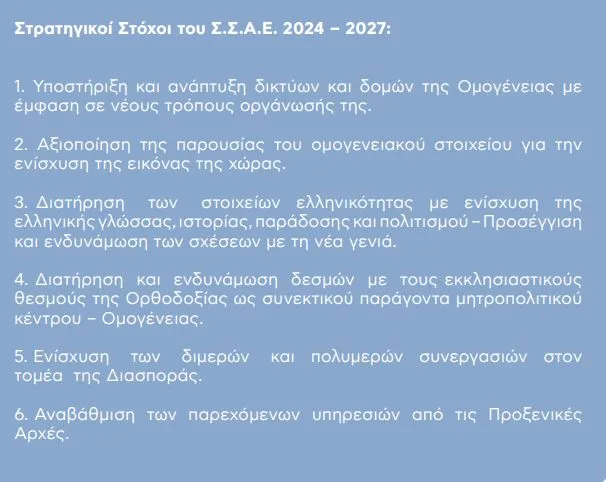
Innovative actions for the diaspora
Secretary-General for Greeks Abroad, Ms Myrogianni discussed the initiatives being promoted for the youth, such as the Greek Youth Diaspora Symposium, and collaborations with organisations such as the Food for Thought Network. Based in Australia, the Food for Thought Network is an organisation dedicated to empowering Greek women in the Diaspora and organised the first global conference in Ioannina titled “Women and Hellenism,” held from 2 to 6 September 2024.
“Companions, the Greeks Abroad”
During the event, a short video was shown highlighting the main themes of the plan. The message was clear: the Diaspora is an integral part of the national strategy, and the bonds that unite us with Greeks around the world must be strengthened further.
Prime Minister Mitsotakis referred to the postal vote system, which was approved by the government majority only for the European Parliament elections and successfully implemented.
He stated, “This proves that the greatest reforms can be achieved, and we are ready to extend this to the national elections of 2027. For this, we need broader consensus, as we require 200 MPs. I hope that there will be consensus among the parties, so that we can send a unified message to the Greeks abroad.”
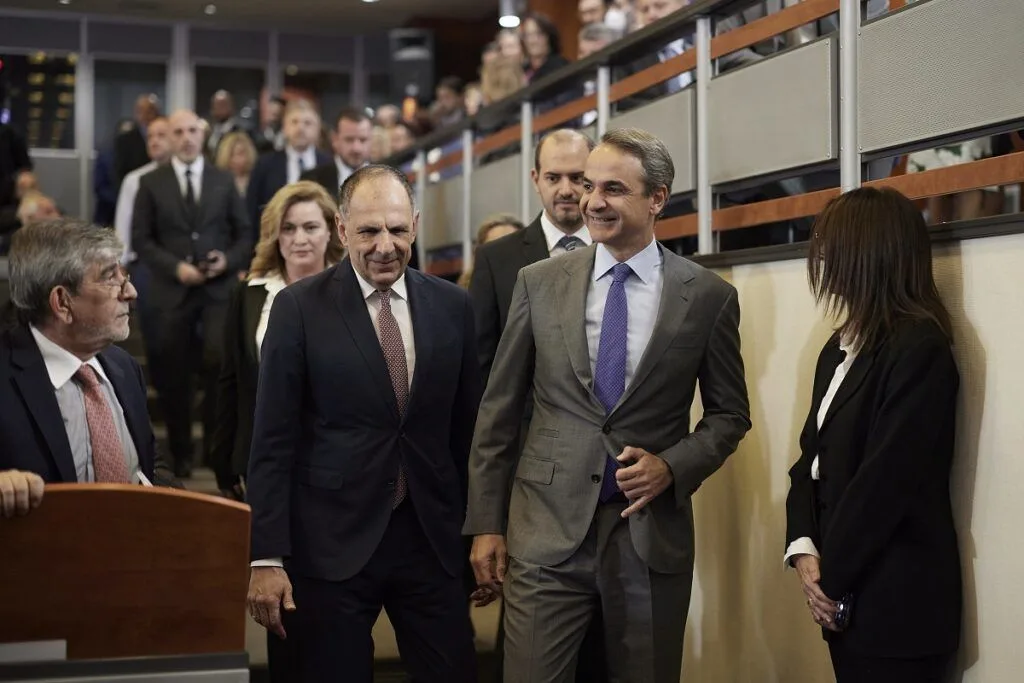
He added, “Greece in 2024 is different from Greece in 2019, and this is something recognised primarily by the Greeks abroad, who can see the progress from afar, free from the distorting lenses of toxic internal political realities.” The Prime Minister concluded by emphasising that “Greece is changing every day, and on this journey, Greeks everywhere must be our companions.”
“With planning and hard work, you can be certain that we will achieve our goals and implement the plan for the Greek Diaspora,” concluded Kyriakos Mitsotakis, sending a message of optimism and national unity to the global Greek community.
